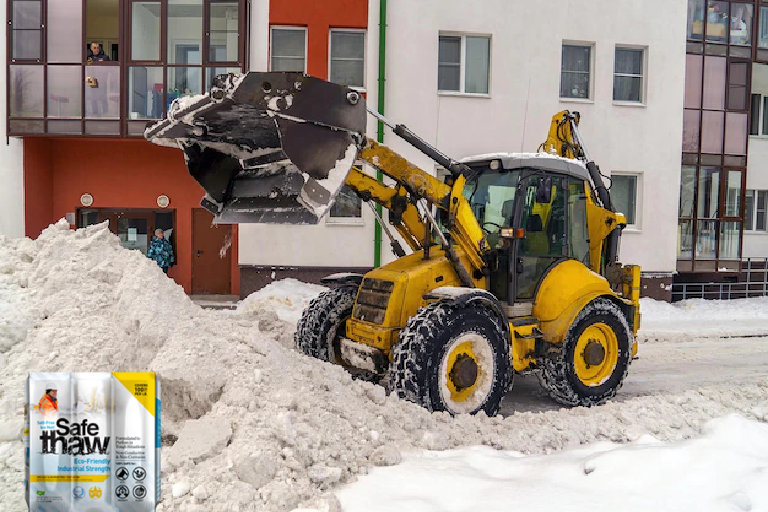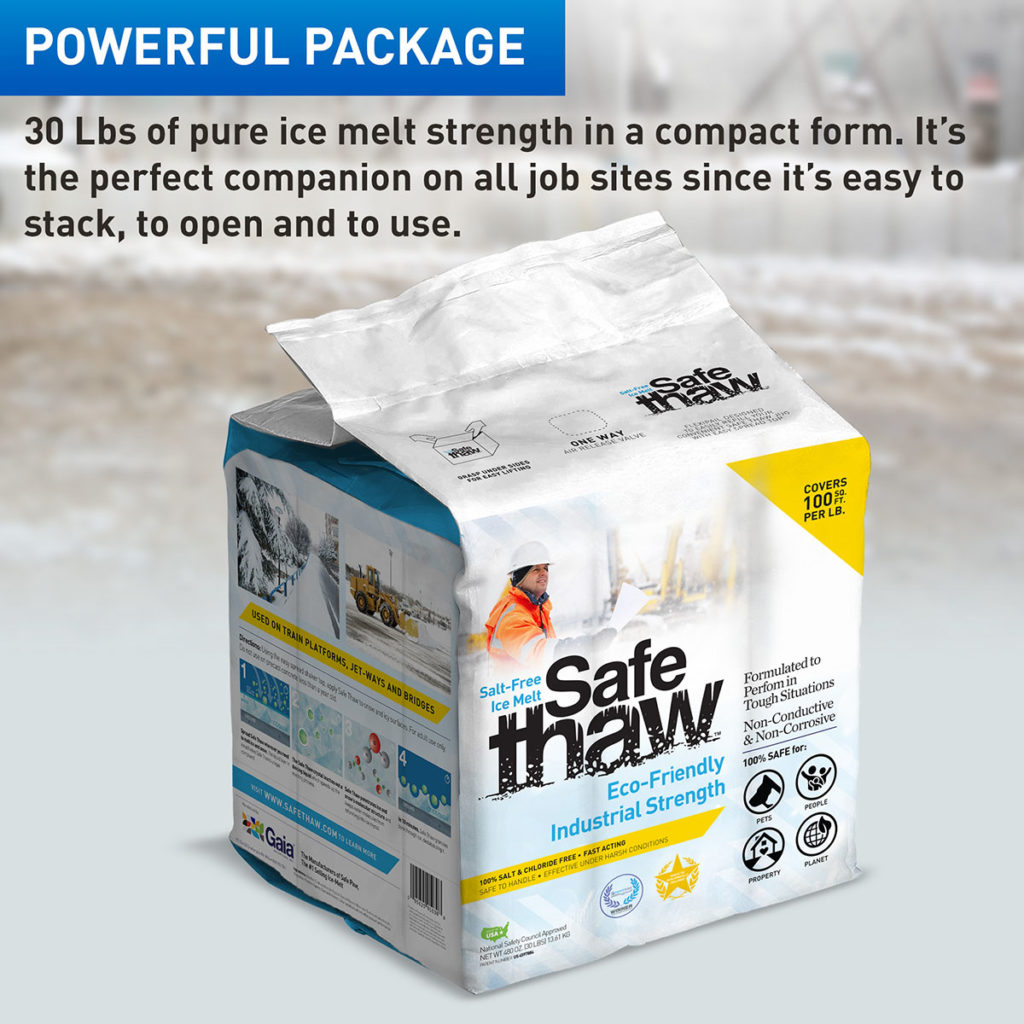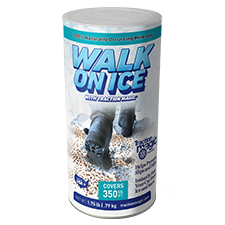Concrete Vs Asphalt Driveway – Difference In The Cost Of Installation

We all know concrete is one of the sturdiest driveway materials today. We don’t need to worry about ‘how to melt ice on stamped concrete?’ when the concrete driveway has been properly laid out and cured. More often than not, the challenge arises when we have to choose a different material for our driveway. Besides concrete, asphalt is another popular driveway material used by several homeowners and commercial property owners.

Safe Thaw
Safe Thaw was created as the ice management solution for tough winter environments. Ideal in commercial and industrial properties, shops, government agencies, bridges, and construction.
In either case, the importance lies in purchasing a natural salt-free ice melt that will not harm the driveway. Keeping this apprehension in mind, Safe Thaw introduced a 100% natural and environment-friendly urea-modified with ice melting boosters, special glycols, and unique surfactants that are safe for your home and vegetation. The idea for creating this product was to help homeowners battle winter woes better.
But, while selecting a natural salt-free ice melt product for your driveway is good, let us understand a quick difference in pricing and quality between concrete and asphalt.
Composition
Concrete driveways comprise cement paste or fluid cement, a mixture of cement and water blended with aggregates such as sand, crushed stone, and gravel. The material hardens after pouring and can be left for a few days to settle and cure.
Asphalt driveways comprise bitumen macadam, asphalt, blacktop, and aggregates such as crushed stone and gravel. It is black due to bitumen and takes 2 to 3 days to settle. It is considered ideal for tarmacs, pavements, and sidewalks and is also popular amongst homeowners for driveways. After pouring the mixture, you must flatten it with a rolling machine.
Cost of Installation
Concrete driveways take anywhere between 7 to 14 days to cure before use. It costs around $4 to $12 per square foot and is slightly more expensive. It can last long because of its sturdiness and can hold more weight.
Asphalt driveways take anywhere between 2 to 3 days to cure fully. It costs around $3 to $6 per square foot and is relatively less expensive than concrete. However, you have to consider the expenditure of the rolling machine before installing one. It is usable immediately after it cools, but it is advisable to wait.
Weather
Concrete driveways are good for warmer conditions but can withstand cold weather, too, if maintained well. It can last up to 40 years or more.
Asphalt driveways are ideal for cold weather conditions as extreme heat can make the black bitumen-induced surface gooey and sticky, spoiling your tires and vehicles. It can last up to 20 years or more.
100% salt & chloride-free, fast acting Ice Management Solution
Conclusion
Both the materials have pros and cons, and if your question of how to melt ice on stamped concrete is answered, the above comparison can help you. Whether your concrete or asphalt driveway costs more or less to install or purchase the ingredients, you must invest in a natural salt-free ice melt to protect your driveways to ensure they do not erode, stain, or crack before time. Have you bought your ice melt yet?
Try Also Our Other Winter Safety Products:
Safe Paw
The Original and #1 Selling Pet and Child Safe Ice Melt for over 20 years. Guaranteed environmentally safe –It won’t harm animals or children, and it won’t damage your property. That’s Safe Paw. Safe Paw can change how winter affects our planet.

Walk On Ice
The handy disposable canister can be taken everywhere, with the same 100% naturally occurring minerals that provide instant traction on ice or snow. Use it on sidewalks, steps, or as an instant traction agent for your car.



